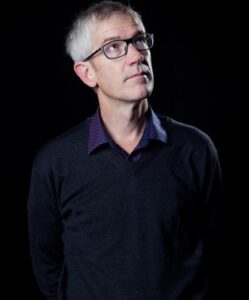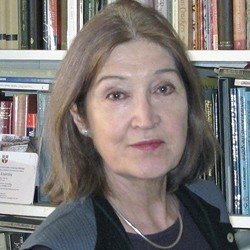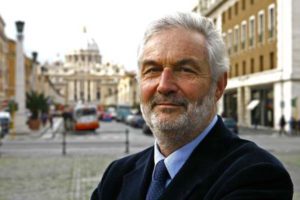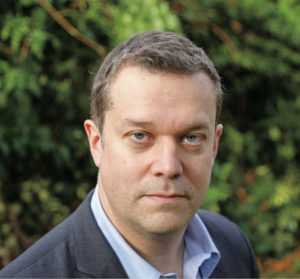SOLD OUT!
Italy invented fascism in 1919. In 1922 the March on Rome led to the first fascist government in history. These were events of global importance, which would affect the lives of millions. This talk will look at the history of Italian fascism through the stories of individual, ordinary and extraordinary people, with an emphasis on the violence of the black-shirts and its role in the rise of Mussolini to power.
John Foot is Professor of Modern Italian History at the University of Bristol. He is the author of numerous books on Italian history and culture, including Calcio: A History of Italian Football (2006); Italy’s Divided Memory (2009); The Man Who Closed the Asylums: Franco Basaglia and the Revolution in Mental Health Care (2015); and The Archipelago: Italy since 1945 (2018). His book Blood and Power: the Rise and Fall of Italian Fascism was published by Bloomsbury and by Laterza in Italian as Gli Anni Neri: Ascesa e Caduta del Fascismo in 2022.
A DRINKS RECEPTION WILL FOLLOW THE TALK
 Prof John Foot
Prof John Foot
DISCLAIMER:
By participating in a BIS webinar or live event you automatically agree to authorise photo and/or recording of audio and visual content during the event and consent to subsequent use of the images, recordings in the public domain. The recording may include questions, comments and poll responses provided by you during the event in addition to your name, voice, image or likeness. The recording as well as images will be made available after the conclusion of the live event as part of the BIS webinar archives, and will remain available indefinitely. If you do not wish to consent to the recording or photo shooting, please do not join the live event or contact us to discuss your concerns.
THIS EVENT IS NOW SOLD OUT!
A JOINT EVENT WITH VENICE IN PERIL FUND
On 14 July 1902 the famous bell-tower of St Mark, the city’s totemic symbol, collapsed into a pile of rubble, crushing Sansovino’s sixteenth-century Loggetta beneath it and narrowly missing the slender columns of the Basilica. News of the disaster flashed by telegram round the world, and the shock and distress felt by Venetians at the sudden loss of their landmark bell-tower was intense. After an immediate decision by the town council that the Campanile would be rebuilt exactly as it was and where it was, the work of recovery, planning and rebuilding took ten years. Sarah Quill tells the story in this illustrated lecture.
Sarah Quill has worked between Venice and London since the 1970s, building up an extensive photographic archive of Venetian architecture, sculpture and daily life. Her book, Ruskin’s Venice: The Stones Revisited was published in 2000, followed by a new and extended edition in 2015, which has recently been translated into Italian. She lectures regularly, principally on Venetian subjects, and is a trustee of the Venice in Peril Fund.
****
THE TALK WILL BE FOLLOWED BY A DRINKS RECEPTION
PLEASE NOTE: Doors will open at 6:30pm

DISCLAIMER: By participating in a BIS webinar or live event you automatically agree to authorise recording of audio and visual content during the event and consent to subsequent use of the recording in the public domain. This recording may include questions, comments and poll responses provided by you during the event in addition to your name, voice, image or likeness. This recording will be made available after the conclusion of the live event as part of the BIS webinar archives, and will remain available indefinitely. If you do not wish to consent to the recording, please do not join the event or contact us to discuss your concerns.
Chaucer’s life was eventful – not only historically (after all, he was born into the aftermath of the Hundred Years’ War and lived through the Black Death) but also geographically. This giant of English writing enjoyed many international sojourns, and one part of Europe influenced his work like no other: Italy. Tracing Chaucer’s journeys and his links to destinations such as Florence, Certaldo, Arqua, Pavia, and Milan, Richard Owen introduces us to the princes, knights, and authors in whose circles Chaucer mixed, and he pinpoints how Chaucer’s Italian influences became manifest in his Canterbury Tales. Owen’s illuminating new account leaves no doubt that, without the influence of Italian luminaries such as Francesco Petrarch and Giovanni Boccaccio, the English canon ‘fathered’ by Chaucer would never have existed as we know it.
Richard Owen observed the international scene for thirty years as a foreign correspondent in Moscow, Brussels, Jerusalem and Rome for The Times of London. His publications include Crisis in the Kremlin, Soviet Succession and the Rise of Gorbachov; Letters from Moscow; The Times Guide to the Single European Market; The Times Guide to World Organisations; and three volumes in the Armchair Traveller series, Lady Chatterley’s Villa (issued in paperback in 2020 as DH Lawrence in Italy), Hemingway in Italy (published in Italian in 2017 as Hemingway e l’Italia), and Chaucer’s Italy, issued in 2022. He joined the BBC in 1973, working in the Overseas Service and subsequently in BBC Television current affairs before joining The Times in 1980 as an editorial leader writer.
A DRINKS RECEPTION WILL FOLLOW THE TALK
PLEASE NOTE: bookings close the day before the event but you can still contact us. If space is still available wew will be happy to accomondate you.
 Richard Owen
Richard Owen
DISCLAIMER:
By participating in a BIS webinar or live event you automatically agree to authorise photo and/or recording of audio and visual content during the event and consent to subsequent use of the images, recordings in the public domain. The recording may include questions, comments and poll responses provided by you during the event in addition to your name, voice, image or likeness. The recording as well as images will be made available after the conclusion of the live event as part of the BIS webinar archives, and will remain available indefinitely. If you do not wish to consent to the recording or photo shooting, please do not join the live event or contact us to discuss your concerns.
Giulio Boccaletti will present his latest work, a revelatory history of how humanity’s relationship to moving water has shaped civilization, transformed political institutions, and defined people’s lives and still shapes today’s politics and economics.
Giulio Boccaletti is a globally recognized expert on natural resource security and environmental sustainability. He is an honorary research associate at the Smith School of Enterprise and the Environment, University of Oxford. Trained as a physicist and climate scientist, he holds a doctorate from Princeton University, where he was a NASA Earth Systems Science Fellow. He has been a research scientist at MIT and was a partner at McKinsey & Company, where he was one of the leaders of its Sustainability and Resource Productivity Practice, and the chief strategy officer and global ambassador for water at The Nature Conservancy, one of the world’s largest environmental organizations. Boccaletti frequently writes on environmental issues for the news media, including Project Syndicate and The Guardian, and is an expert contributor to the World Economic Forum.
****
THE TALK WILL BE FOLLOWED BY A DRINKS RECEPTION

Photo credit: Andrea Mattiello
DISCLAIMER: By participating in a BIS webinar or live event you automatically agree to authorise recording of audio and visual content during the event and consent to subsequent use of the recording in the public domain. This recording may include questions, comments and poll responses provided by you during the event in addition to your name, voice, image or likeness. This recording will be made available after the conclusion of the live event as part of the BIS webinar archives, and will remain available indefinitely. If you do not wish to consent to the recording, please do not join the event or contact us to discuss your concerns.
ZOOM WEBINAR | Ticket price £8
Leonardo da Vinci loved wine and wine making. He left lots of notes and drawings on these subjects – as always he was very much ahead of his time in his ideas and visions. Not many know that he owned a vineyard in Milan. Annalisa Conway will explore the story of how Leonardo came to own the vineyard which was at the back of Casa Atellani and the story of the beautiful Casa Atellani itself.
Annalisa Conway, blogger and author, grew up in the Veneto region in Italy and studied at the University of Padua, graduating with a degree in Modern Languages and Literatures. After a career in the Human Resources department of an Italian bank in London she later trained as a legal interpreter to eventually turning her career to work as an Italian and Spanish Teacher. Since retiring she spends her time travelling in the “bella Italia” and writing a blog about Italian lesser known places of interest, art, history and, most importantly food and wine.
Visit www.LittleItaliansuitcase.com
BOOKING INFO: By clicking the Book Now button you will be redirected to the Zoom registration page. After registering you will receive a confirmation email containing information to join the webinar. Please, be sure not to miss or loose this email or you may not be able to access the webinar. This email also contains links to add a reminder to Calendar, Google calendar and Yahoo calendar. If you use one of these applications, I suggest you adding the reminder to not miss the link to the event.
DISCLAIMER: By participating in a BIS webinar or live event you automatically agree to authorise photo and/or recording of audio and visual content during the event and consent to subsequent use of the images, recordings in the public domain. The recording may include questions, comments and poll responses provided by you during the event in addition to your name, voice, image or likeness. The recording as well as images will be made available after the conclusion of the live event as part of the BIS webinar archives, and will remain available indefinitely. If you do not wish to consent to the recording or photo shooting, please do not join the live event or contact us to discuss your concerns.
Photo credit: Angilolli – Own work, CC BY-SA 4.0, https://commons.wikimedia.org/w/index.php?curid=10675865